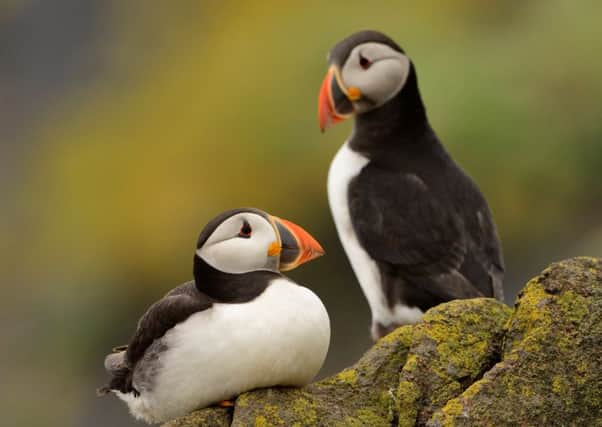Scotland must act to protect ‘jewels in crown’ of natural world – leader comment


Sites of Special Scientific Interest (SSSIs) are supposed to be, as one environmentalist put it, the “jewels in the crown” of the natural world.
But, as The Scotsman reports today, nearly a third of the environmental features in Scotland’s SSSIs – the reasons why these sites are important – that have been assessed by Scottish Natural Heritage are officially classed as being in an unfavourable condition.
Advertisement
Hide AdAdvertisement
Hide AdThe problems range from an “apocalyptic” decline in the numbers of birds nesting at a puffin colony on Sumburgh Head in Shetland to “poor remedial management” of rare plant species on Arthur’s Seat in Edinburgh. But, for the most part, they share a common theme – humans.
Since the dawn of civilisation, we have increasingly relied on the natural world to supply all our needs and it has done so. However, we are now starting to realise that there are limits and we cannot continue to live like this indefinitely.
As the RSPB rightly said, the state of SSSIs in Scotland and the rest of the UK is “shocking”. If we can’t even safeguard these most precious sites, what does that say about nature conservation outside them?
We already have a pretty good idea about that as, in October, the latest State of Nature report reported that half of the 6,413 species found in Scotland had declined since 1970 and more than one in ten was at risk of extinction.
But the situation is certainly not all doom and gloom, there is hope for the future and it would be a profound mistake to give in to despair.
Indeed, SNH said that many of the sites were “projected to improve” as they and other bodies, as well as farmers and landowners, work to tackle issues such as the effects of climate change, invasive species and over-grazing.
The evidence that we have a problem is clear, so action is required. But, as with most things, our approach has to be pragmatic. Anything demanded of landowners must be reasonable but, also, reasonable requests should not be ignored.
Those who stand in the way of progress on this issue need to realise they are on the wrong side of history. We must find a better way for humans to live side by side on this planet with the rest of the natural world. Its crown may be tarnished and some of the jewels keep going missing but, by and large, we know how to fix it and simply need to get on with the job.
